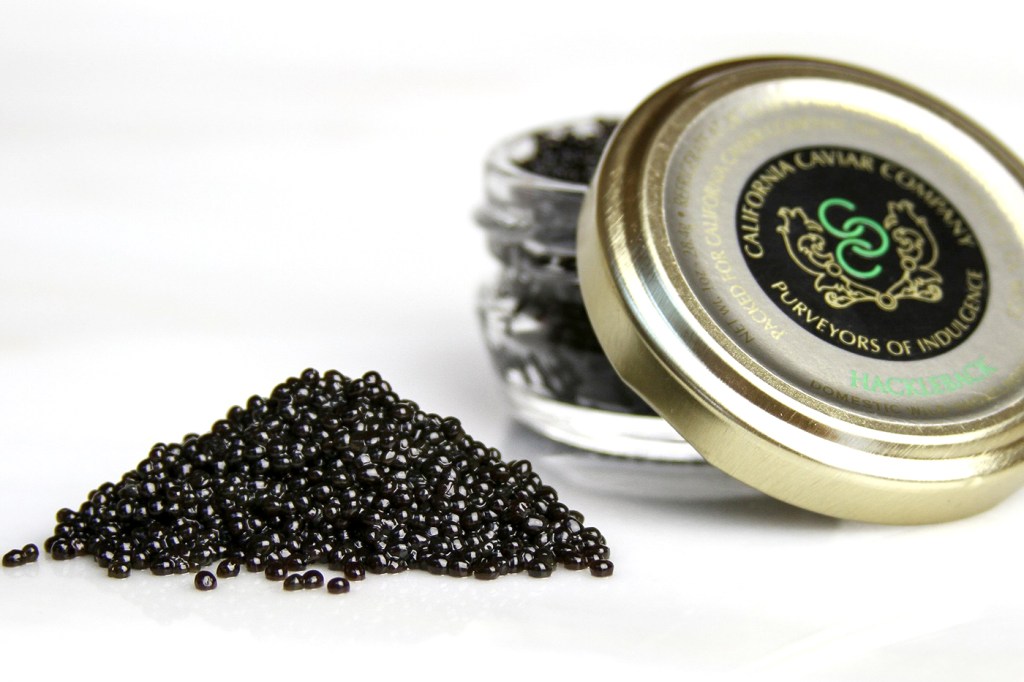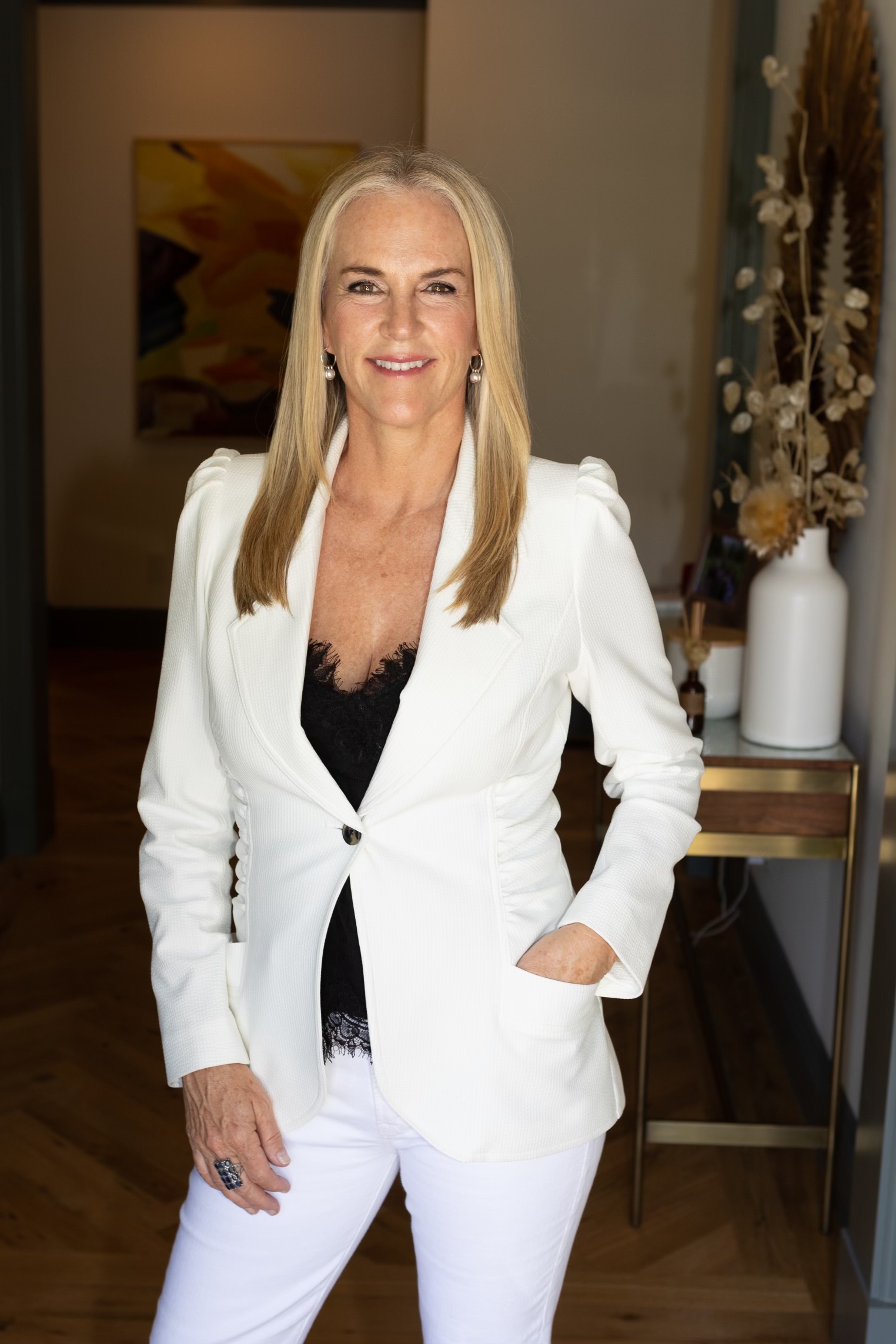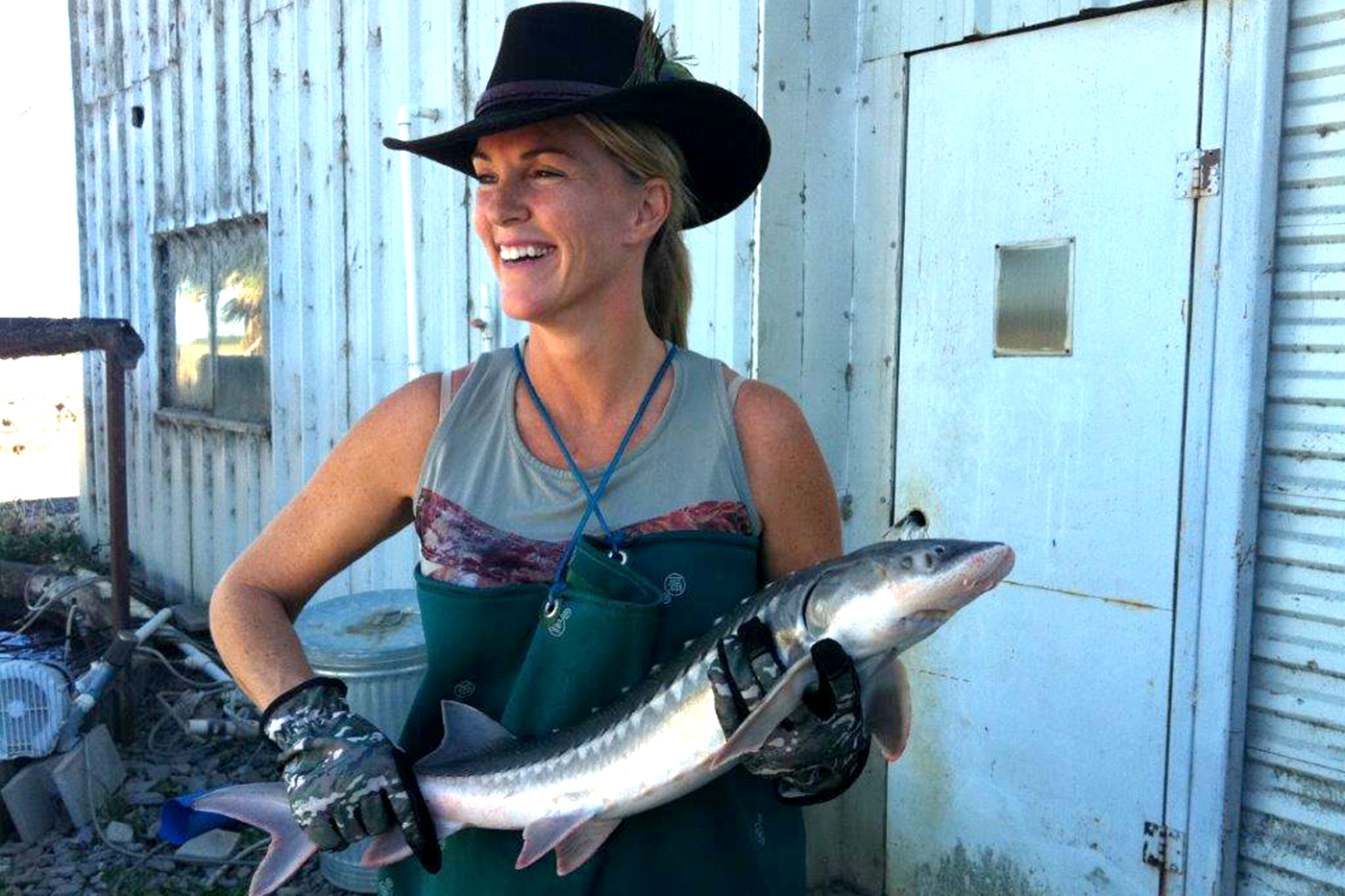The caviar industry was in trouble. This former nursing student is saving it.

An award that she has received from Northeastern will help revolutionize the caviar industry, says Deborah Keane, founder and chief executive officer of the groundbreaking California Caviar Company.
Keane’s company is committed to the development of “no-kill caviar,” which enables ripe eggs to be massaged from a female sturgeon without killing or cutting into the fish. Keane, known as the “Caviar Queen,” is transitioning her sturgeon farm in California to implement the new process, which was designed by Angela Köhler, a German scientist.
The farming of sustainable stocks of sturgeon will enhance the quality and accessibility of caviar, Keane believes.

Deborah Keane’s entrepreneurial mindset has led to careers in modeling, publishing, cooking, and caviar. Courtesy photo
“It’s vitally important to the species,” says Keane, who has reinvented herself several times since graduating from Northeastern in nursing in 1986. “And it’s important to California Caviar Company to continue to lead the way in sustainable farming and processing practices.”
In support of her efforts, Keane has received an inaugural $5,000 Innovator Award from Northeastern’s Women Who Empower inclusion and entrepreneurship initiative. The awards recognize 19 women who are graduates or current students at Northeastern. The organization is distributing a total of $100,000 in grants to help fund 17 ventures.
The timing of the award is serendipitous: It arrives on the heels of a business transformation that was forced upon Keane by the COVID-19 pandemic, which wiped out restaurant demands for her caviar. By mid-March 2020, sales had plummeted by 95 percent.
Keane was forced to lay off almost all of her staff except for those on the fish farm. She responded by moving into online retail, locating and selling to customers who were now dining at home. The transition, taxing as it was, happened with unanticipated speed: By the end of last year, the company was earning more than it had 12 months earlier, which enabled Keane to bring back all of her staff.
“I was thinking, ‘Can I hire somebody to do these things I don’t know anything about?’” Keane says of the online skills that she was forced to learn. “I think it’s all about the Northeastern philosophy, where you just jump in, learn it, improve the process, and perfect it.”
Keane grew up in Foxborough, Massachusetts, less than an hour from Northeastern’s campus, where she sold hot dogs at the stadium of the New England Patriots. Her entrepreneurial mindset has led to careers in modeling, publishing, cooking (via a four-year sabbatical in Paris), and, for the past 14 years, caviar—the result of a fundraiser at the home of Michael Tilson Thomas, the renowned conductor, where she was introduced to an investor in a caviar-producing farm.

“Deborah is an inspiration,” says Betsy Ludwig, executive director of women’s entrepreneurship at Northeastern. “When she saw an opportunity in the world, she used her determination, grit, and authenticity to build a sustainable business by leveraging her entrepreneurial mindset even though business wasn’t her original field of study. That’s what it takes to build impactful, global businesses. You need to step out of your comfort zone.”
In an industry dominated by men, Keane has succeeded by building a company run by women.
“I have this incredible staff—all of them are single moms, all but one is a minority, and half of us are ‘me-tooers,’” Keane says. “If you want something done, give it to a working mom.”
The business of caviar was imperiled by unreliable sources and illegal poaching of wild sturgeon. Keane launched California Caviar Company in 2007 as the first company to exclusively sell farmed caviar prior to a 2011 worldwide ban on wild sturgeon fishing. The advent of “no-kill caviar” in the United States will make the food palatable and accessible to new generations, she believes.
“The nutrition of caviar is off the charts,” says Keane, citing its tissue-building properties. “The sturgeon is a prehistoric creature that is on the endangered list. Bringing this sustainable product to the marketplace has been fascinating. I love the science behind it.”
For media inquiries, please contact media@northeastern.edu.






